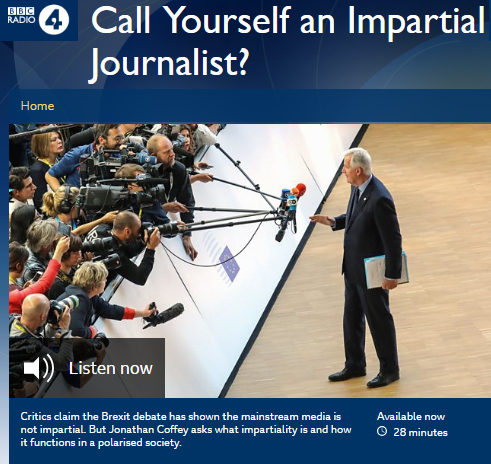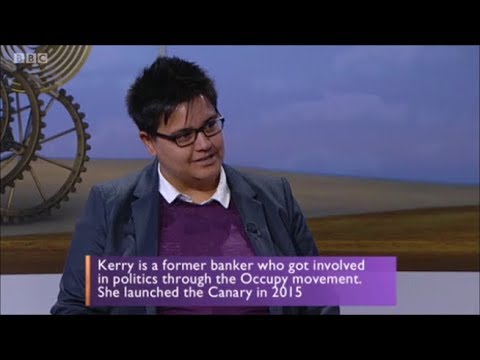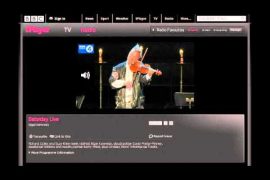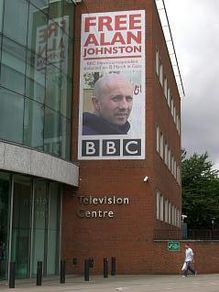On April 26th BBC Radio 4 aired a programme titled “Call Yourself an Impartial Journalist?” by Jonathan Coffey.
“Amid the anger increasingly directed at broadcast journalists from those who claim that the so-called “mainstream media” can’t be trusted, a battle is being fought over impartiality.
The big, regulated broadcasters – including the BBC, ITV, Channel 4 and Sky – argue that their output has to meet the test of “due impartiality”; their critics claim that too often programmes in fact evince bias.
In this documentary, Jonathan Coffey – who has worked on major stories for “Panorama” for over a decade – explores what impartiality means as our politics and national discourse have become increasingly polarised. Does it still matter as a concept for broadcasters? And how should broadcasters approach controversial issues like Brexit, immigration and transgenderism?
He considers how well impartiality is understood, the arguments advanced by the broadcasters’ critics about alleged failures of impartiality; the BBC’s track record on reflecting significant strands of thinking; the “liberal media bubble”; how far broadcasters are open-minded in avoiding biases; and if a more rigorous and radical open-minded journalistic approach is needed, especially in the coverage of deep value disputes.”
While the programme focuses primarily on domestic issues and does not relate at all to the BBC’s coverage of the Middle East, it nevertheless makes for interesting listening while keeping the corporation’s track record on that topic in mind.
Notably the contributors chosen by Coffey for this programme all come from the media world and include the BBC Two ‘Newsnight’ presenter Emily Maitlis.
2:20 Maitlis: “I think it’s [impartiality] absolutely intrinsic to what the BBC does and at its centre it’s about giving the public as much as they need to understand the story better. I think it’s about helping the audience to form their views. So for us, it’s trying to work out how best we do that and to be honest it’s a really live, ongoing discussion.”
8:10 Maitlis: “I think it’s [impartiality] really, really important to hold on to. I think it’s something that we grapple with every single night. It’s what we do and I don’t want to be working somewhere that has given up on impartiality because then we’re just opinion. We’re ranty radio or ranty TV. And there’s plenty of that in other parts of the world.”
Regular readers may recall Ms Maitlis’ own departure from those fine principles less than five years ago.
“BBC Two ‘Newsnight’ presenter Emily Maitlis however did not need to wait until investigations had been completed in order to determine whether the UN facility was hit by an errant IDF shell, a shortfall terrorist missile, terrorist mortar fire aimed at IDF troops or any combination of the above. Interviewing Israeli spokesman Mark Regev just hours after the incident – and clearly completely misunderstanding the nature and intention of IDF warnings to evacuate because of fighting in the area – she emotionally charged Regev with the following:
“But you said you were going to hit it. You hit it. You killed them.”
Beyond Maitlis’ distinctly unprofessional demeanor throughout this interview, her repeated interruptions and her obvious urgency to promote her own version of events to audiences, one patronizing statement she makes is extremely revealing and actually captures the essence of much of the BBC’s reporting of the current hostilities in a nutshell.
“You have a very effective defence system. It’s called the Iron Dome. It stops you for the most part being hit. They [the people in Gaza] don’t and they’re paying the price with their dead children.”
Another of Coffey’s contributors was ‘The Canary’ editor Kerry-Anne Mendoza who claimed that the views of the Left are under-represented in UK broadcast media.
12:45 Mendoza: “Whose view is under-represented? It’s the Left. It’s just a fact and on issues say like climate change or Brexit, Jeremy Corbyn and the Labour party, the guest list is often weighted towards the status quo and weighted towards the media which is hostile to any kind of politics or economics outside the bubble that it’s used to.”
Mendoza has herself been a not infrequent contributor to BBC programmes such as ‘Question Time’, ‘Newsnight’ and political shows. Regular readers may recall her inadequately challenged promotion of falsehoods designed to equate Israel with the Third Reich on BBC Radio 4 three years ago.
Nevertheless, these are some of the voices that Jonathan Coffey apparently considered would contribute to Radio 4 audiences’ understanding of “open mindedness” and “escaping bias” as impartiality is defined throughout the programme.
Related Articles:
BBC Newsnight’s Emily Maitlis to Israeli spokesman: “You killed them”
What Beit Hanoun tells us about BBC impartiality
BBC Radio 4 promotes Nazi analogy in a discussion on antisemitism





